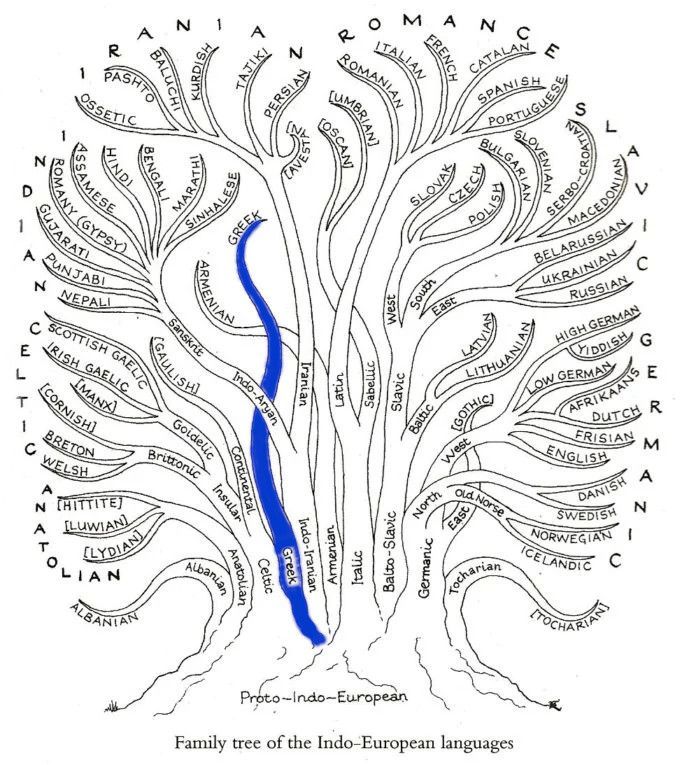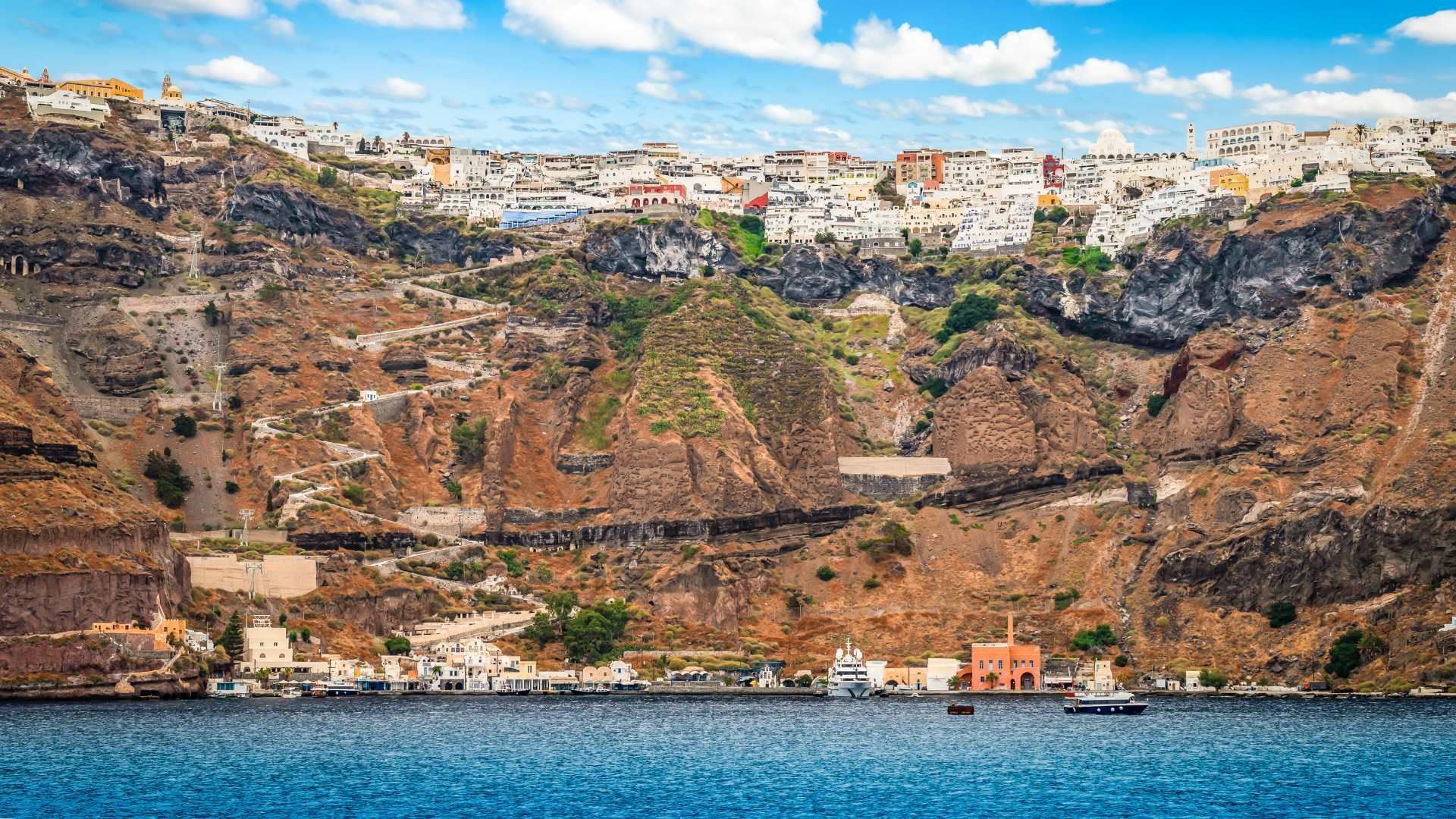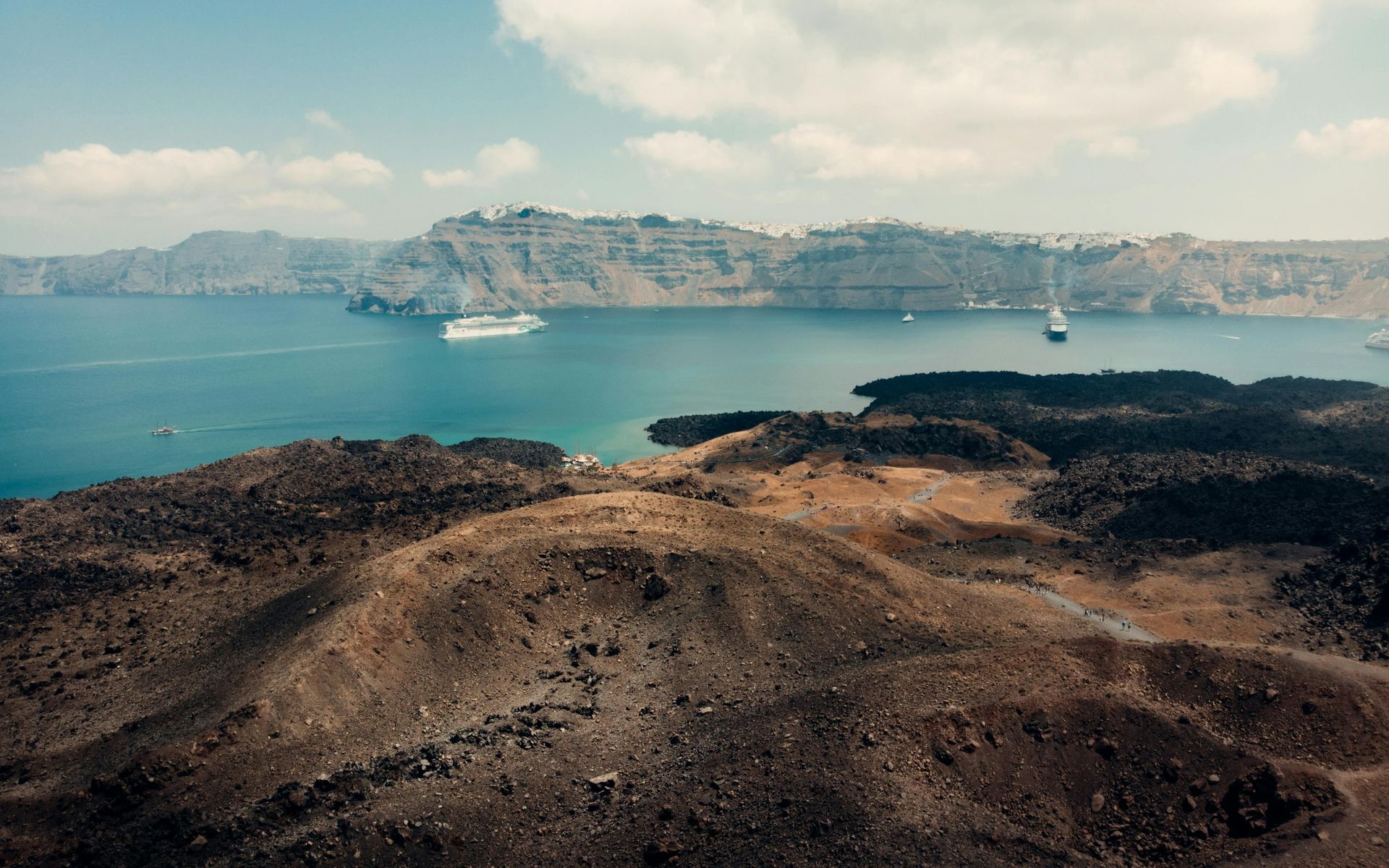The Origin of the Greeks - Part I
Ever wondered who were the first true Greeks?
Recently, I found myself immersed in a captivating conversation that truly stirred my thoughts. A guest posed a profound question that actually made me pause and think. Where did the Greeks come from originally? 👣
Soon, I realized I had to go back further, way beyond the 2nd millenium B.C., before the idyllic island-dwelling Minoans and the mainland-based Mycenaeans cultures flourished. But when exactly does the first Greek make an appearance in history? 🏺
This question remains a focus of ongoing research among archaeologists and linguists, and there are certain theories that are accepted as being close to the truth, which I am going to share with you.
The Indo-European origin of the Greeks.
The Greeks are thought to belong to the vast Indo-European family, a group of various tribes spread from Europe to India, who initially resided in a shared homeland and communicated in the same language. This "discovery" of the Indo-Europeans was primarily made by historical linguists.
The Indo-European theory is based on the idea that many Eurasian languages, despite the geographical distances between them, have a lot in common. Delving into this theory revealed remarkable similarities in vocabulary and grammar among Latin, Greek, and Sanskrit, the oldest known languages.
So it is presumed the existence of a "mother" language transformed into various "daughter" languages as its speakers spread across the globe. These related but distinct languages led researchers to use the term Indo-European for this culture and Proto-Indo-European for the initial language.
Current theories indicate the South Russian steppe and Eastern Anatolia as the Proto-Indo-European homeland, around 6000 years ago, possibly earlier. However, between 4500BC and 2500BC, for reasons yet unknown, various tribal groups slowly started to leave their original homeland and move in different directions in search of new lands.
Some groups headed towards Asia Minor, Persia, and India, while others moved towards Western Europe and the Balkan Peninsula. Indo-European groups, as they settled globally, often exterminated entire indigenous cultures, displacing local populations and even earlier Indo-European settlers. They came to rule in regions such as India and Italy, evolving into the ruling castes and Romans, respectively. In every region, from central Europe to the Near East, they caused social turmoil.
The inference is that the Indo-Europeans might have reached Greece either from the Balkans or northwest Asia, and their settling didn't happen overnight. It was a slow, long process that took place at varying times, gradually mixing with earlier inhabitants. Some believe that the first people appeared around 3000 BC, during the shift from the Neolithic Age to the Early Bronze Age.

Initially, these tribes inhabited North and Central Greece prior to their southern migration, thereby establishing the Greek tribes of the Ionians, Achaeans, Dorians, and Aeolians, among others. The so-called last great invasion from the north-west to the south of Greece, was made by the Dorians, around 1100 BC, taking advantage of the weakening Mycenaean world. Part of these Greek tribes later moved eastward, crossing the Aegean Sea and Aegean Islands towards Minor Asia.
Historical records capture the chaotic nature of these invaders through various documents. This turbulence led to the disappearance of native cultures such as the Pelasgians, known as pre-Greeks (pro-Hellenes), confining them to historical mysteries. These stories can be be found in myths, religious practices, and traditions kept by ancient scholars, but mostly in the language.
What do we know about the pre-Greeks?
During these prehistoric times, scattered across the Aegean Sea were islands that were already home to established and thriving civilizations. Notably, the ancient civilizations of Cyclades Islands and Crete. These societies, seeped in lore and mythology, possessed a rich and complex history. Their contributions to art, architecture, and culture were as significant as the riveting stories and legends that arose from their existence, painting an intriguing picture of life during these early times. They are reknown now as the Cycladic, the Minoan, the Northeast Aegean Islands and finally the Mycenae prehistoric civilizations.
Still who were these people?
It is said that the Mediterranean was inhabited by Pelasgians, Leleges, and Carians, all Pelasgian tribes. The Pelasgians were populous and had a vast territory, extending to Greece, Illyria, Italy, Asia Minor, the Aegean islands and other regions.
The Pelasgians were a restless people, often moving around. They were skilled in shipbuilding. Notably, the Arkado-pelasgians, migrated to various parts of the Mediterranean and the Black Sea, and they claimed to be the sole survivors of a flood, which is a belief shared by various ancient historians.
Many Greeks mention Arkadopelasgian colonies in Italy, Crete, Libya, Asia Minor, Pontus, Cyprus, Rhodes, Lefkada, Zakynthos, Thessaly, Epirus, Troy, Lemnos, and Ibro. Also, Cretan and Aegean Pelasgians eventually settled in the Middle East, giving rise to the Philistine people who later mixed with the Arab element.
The Pelasgians established a unique culture and are thought to have invented writing. The Leleges, who are often identified with the Pelasgians, were considered the earliest inhabitants of Greece. Major Lelegian centers existed in Asia Minor, Cyclades, Aetolia, Acarnania, Locris, and especially Lacedaemon, among other places. Their hero was Lelex, with many traditions surrounding his origins.
The Pelasgians lived in mainland Greece, specifically in "Pelasgian Argos," Thessaly's lowland, and Epirus, with Zeus as their main deity. They were also dispersed in Thrace, Evia, Attica, Argolis, the Peloponnese, Arcadia, and Achaia. Many areas inhabited by the Pelasgians were named "Pelasgia," including Arcadia, Larissa, the island of Delos, the island of Lesvos, and all of mainland Greece with the Peloponnese.
The Pelasgians inhabited the Mediterranean basin along with the Leleges and the Carians, who were also Pelasgian tribes. The Pelasgians were an ancient populous people spread throughout not only Greece but also Illyria, Italy, neighboring regions, Asia Minor, and the Aegean islands. Due to their restless nature, the Pelasgians were referred to as 'storks' by Aristophanes and 'frogs' by Plato. They were highly skilled in navigation and seafaring. The Athenians claimed descent from them and prided themselves in being the oldest city and settlement.
Ancient tribes such as Leleges, considered to origin from the east, according to Herodotus were people who in old times dwelt in the islands of the Aegean and were subject to Minos of Crete.
The eminent historian Herodotus mentions: "I am unable to assert with certainty the language the Pelasgians spoke. However, if I were to conjecture based on the Pelasgians...who once cohabited with the Athenians...it could be said the Pelasgians used a barbarous language."
🧠Dedicated to Jeff 💗






